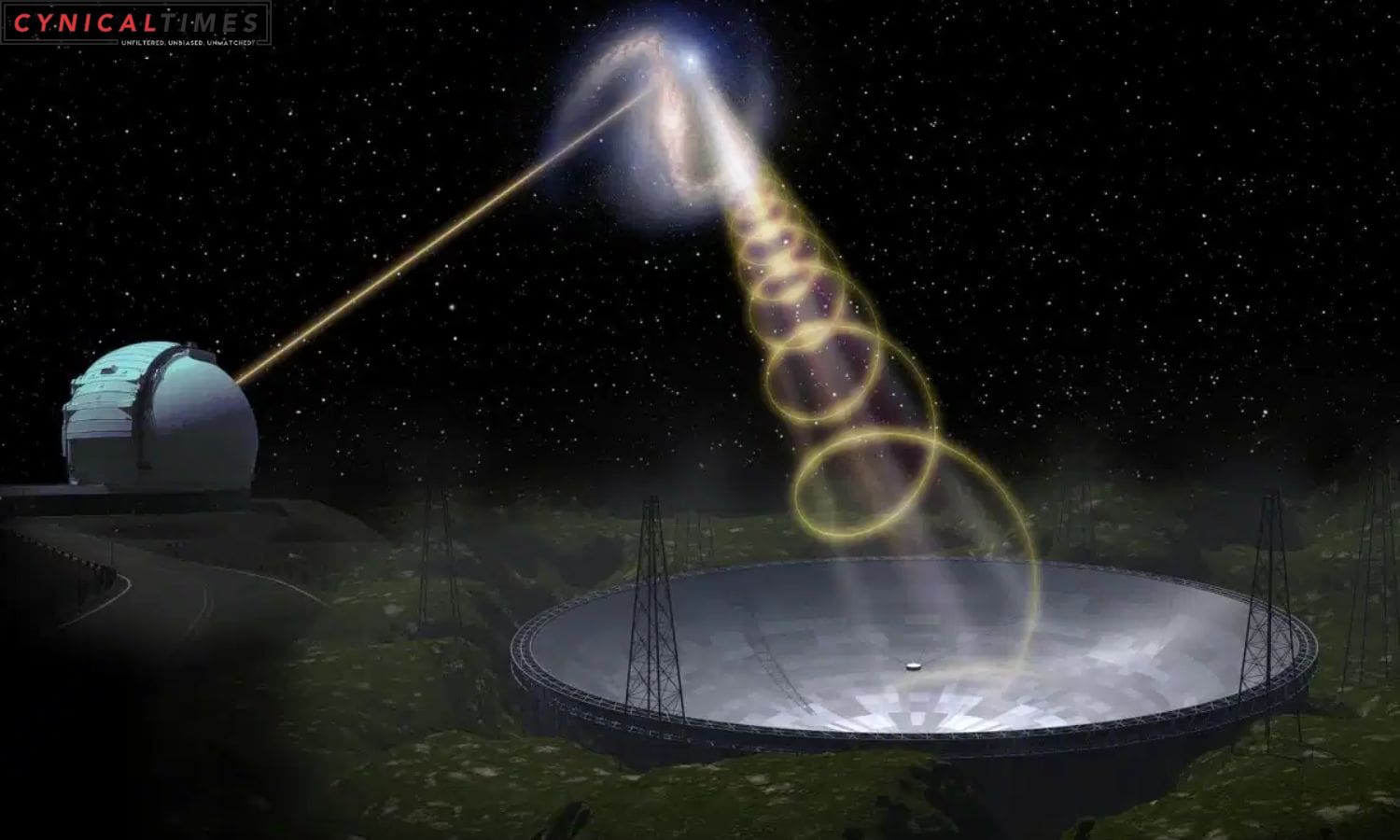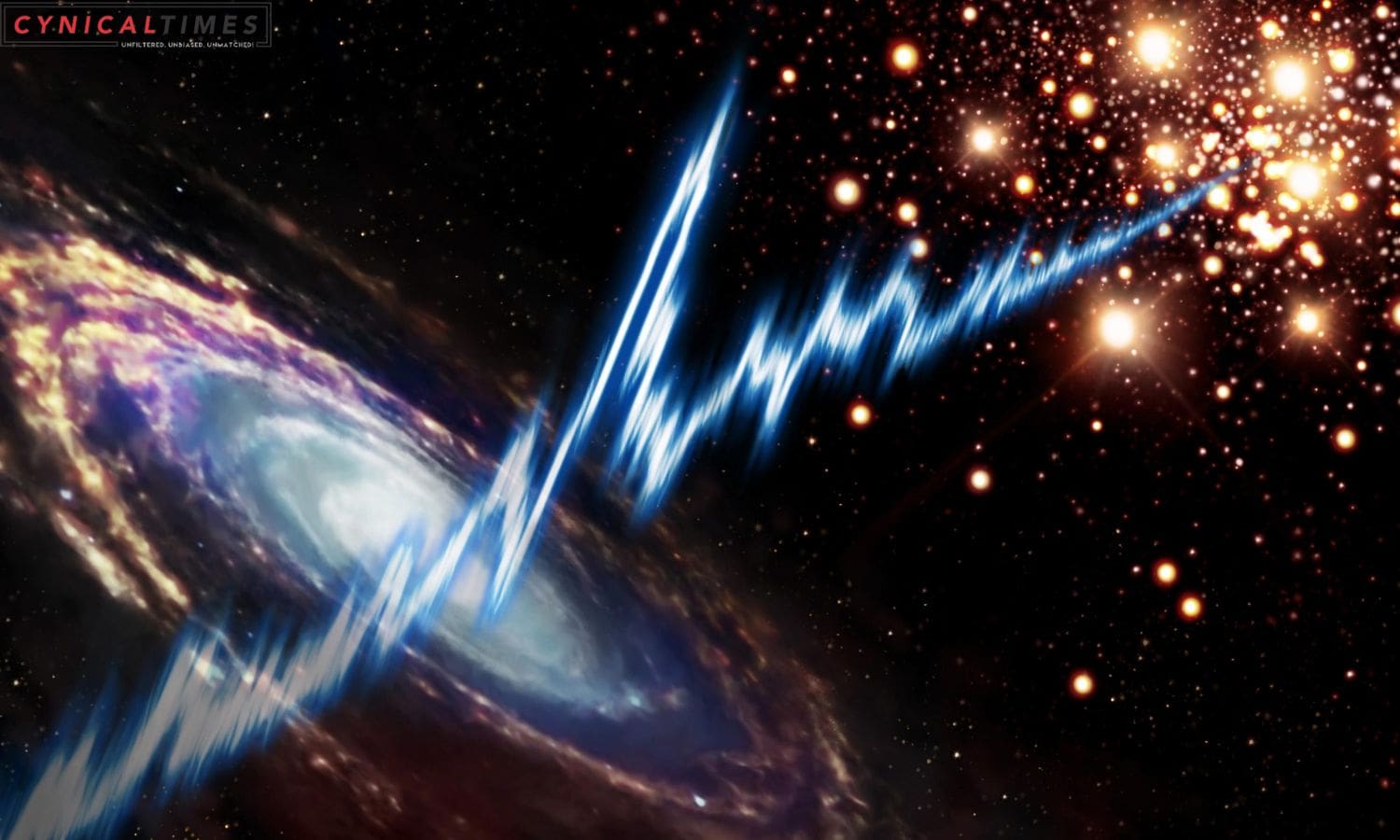Cosmic Symphony Mysterious Deep Space: In the pursuit of unraveling the secrets of deep space signals, scientists are captivated by a peculiar discovery involving a repeating Fast Radio Burst (FRB). Picture a burst of radio light, surpassing the brightness of a billion suns, lasting just a millisecond – that’s an FRB. Typically originating beyond our Milky Way galaxy, most are one-time events, but some “repeaters” emit multiple bursts, leaving scientists pondering their origins.
A recent study in the Monthly Notices of the Royal Astronomical Society unveiled a highly active repeating FRB with an unprecedented behavior – emitting bursts with a peculiar “sliding whistle” effect, introducing a novel dimension to our understanding of deep space phenomena.
The exact cause of FRBs remains elusive, but this discovery marks a significant stride in comprehending these enigmatic celestial objects. It’s akin to discovering a new word in an alien language, offering a tantalizing clue to an entirely new cosmic conversation.


Also Read: Cosmic Surprise Rogue Planet Challenges Laws of Celestial Choreography!
Astronomers attempted to discern a pattern in the timings between bursts for FRB 20220912A, akin to some known repeating fast radio bursts. However, no discernible pattern emerged, emphasizing the unpredictable nature of celestial events.
Lead study author Dr. Sofia Sheikh, a National Science Foundation MPS-Ascend postdoctoral fellow at the SETI Institute, remarked, “This work is exciting because it provides both confirmation of known FRB properties and the discovery of some new ones.” Fast radio bursts (FRBs) are intense blasts of radio waves with the potential to emit as much energy as the sun does in three days, compressed into mere thousandths of a second, as reported by Space.com. Many aspects of these events remain shrouded in mystery.
FRBs emanate from various parts of the sky, with frequencies around 1,400 hertz, though some have been detected at frequencies as low as 400 to 800 hertz. It’s estimated that around 10,000 FRBs could occur randomly in the sky over Earth each day. Despite their brief duration and weak signals – 1,000 times weaker than a mobile phone signal from the moon – FRBs present a considerable challenge for detection due to their elusive and transient nature.

